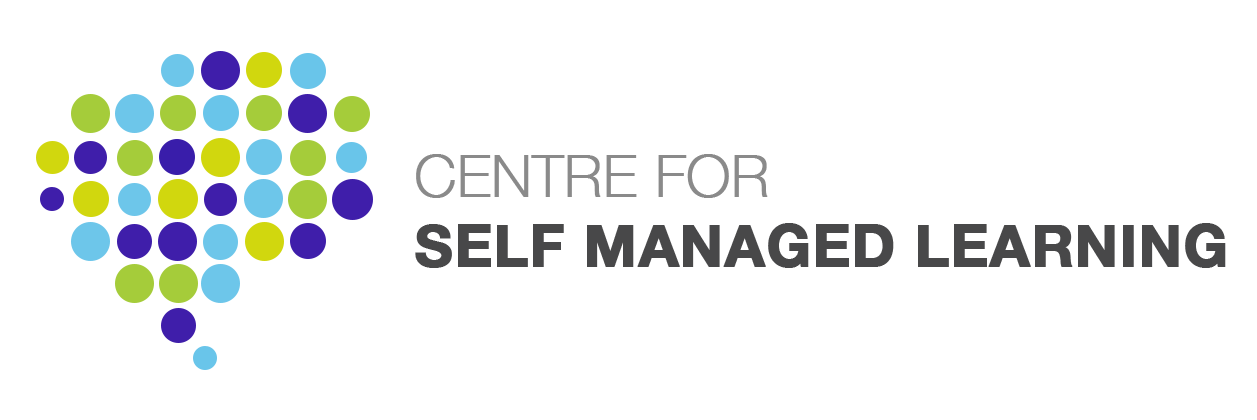06 Sep Issues in Research on SML
 I do not have any new research about SML applications to report. This is more a ‘thought piece’ on the ‘usefulness’ of research in SML. My thoughts go something like this.
I do not have any new research about SML applications to report. This is more a ‘thought piece’ on the ‘usefulness’ of research in SML. My thoughts go something like this.
[member]
Doing SML, researching our practice in doing it, and reporting the outcomes to colleagues, seem to fit very well together. Whether as a set adviser and/or as a self managing learner, doing this professionally requires that the person matches up to Donald Schon’s notion of the ‘ reflective practitioner’. We should be able to communicate the knowledge we have gained from our research and practice to others. Some of our practice will be ‘embedded’ in propositional knowledge (knowing about) and practical knowing (knowing how to). The greatest proportion of it, will be experiential knowing, ‘embodied’ in our own practice or modelled in the behaviour of more experienced colleagues, clients or sponsors. By their very nature, the principles and practise of SML seem to provide the ideal structure and context where learning and researching can be as one.
If I had some research work to report on here, I think that I could communicate about all the kinds of knowledge above in a written form and in a way that those likely to read it would find useful. However, at present, that is not my concern. Of greater importance would be whether or not those unlikely to read it would also find it useful, and sufficiently useful to want to get involved and develop SML for themselves or for their organisations.
I had assumed that one of the important outcomes of research in SML (as in anything) would be better individual or corporate decision making on the part of those who had not used it; about whether, when or how to use it. Recent experiences lead me to conclude that this is not the case. Perhaps I should not be so surprised, given that I also know that decisions of these and other kinds in organisations are affected by all sorts of things other than the clear evidence about precisely what something is and about it’s efficacy.
On the other hand, it does raise the obvious point that what is useful to individuals and organisations who are into SML is not the same as what could be useful to those who are not – or useful in communicating with those who are not. It seems that my communication of research based propositional knowledge is OK but that of practical knowing, linked as it is to embodied knowledge is not.
Since beginning to write this piece, I have come across a qualitative evaluation study of a management development programme, just published, which unintentionally provides some pointers, (Holman, Hall : ‘Competence in MD : Rites and Wrongs’ : British Journal of Management : June 96). I say unintentionally because the research was an evaluation study of a programme driven by the MCI competence framework and standards. Not surprisingly, the findings of the study led to concerns on the part of the researchers about competence driven development processes, e.g. that they are reductionist and contrive no more than a ‘tick box approach’! These are worth examining in some detail within an SML frame, (as a contribution to discussion about what SML is and it’s efficacy), and I will do so in an item in the next Newsletter. However, the lights that they shed can also be focussed on the issues raised here.
Specifically, their concerns highlight the general problem with language in our field. On the one hand, where language is a problem for competence driven processes, it is not for SML. The clear distinctions between structure and direction and between map and territory in SML provide a process within which people are able to develop their own particular understanding of the territory or field of study. On the other hand, the particular and necessary language of SML is bound to present a similar problem when the context is one in which it is being used to describe and explain the approach to those unfamiliar with it. This indicates two potential areas for research.
Firstly, we need to be creative and careful about the words we use to communicate about SML structures – a common sense view about being sensitive to the needs of our audience at the same time as not doing a misjustice to SML principles. Research could make a contribution though; as a ‘natural’ part of sharing our learning as reflective practitioners or, more formally for example, as the creation of an ‘SML thesaurus’ on which we could all draw.
Secondly, just as research has contributed to the development of structures and processes within SML, so it could also investigate the kinds of environments, in structural and processual terms, that could provide the most fertile ground for developing understanding about SML amongst those who have not experienced it.
This would also contribute to finding ways of helping people to understand and accept that having a particular language to describe and explain SML is important. From the foregoing, it is clear that the meaning of words are defined by the context and their use, as much when we are talking about SML as when we are doing it (e.g. a ‘learning group’ in one organisation may be more appropriately called a ‘development group’ in another). None the less any alternative terms need to be considered carefully in relation to each other. Each contextually specific language about SML needs to be internally consistent and coherent in order for participants on programmes to have the real freedom to direct their own learning.
Ben Bennett
[/member]

